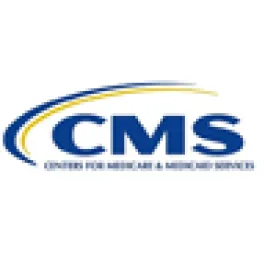On May 21, 2021, the Centers for Medicare and Medicaid Services (“CMS”) announced that the Next Generation Accountable Care Organization (“ACO”) Model (“NGACO Model” or “Model”), set to end December 31, 2021, will not be extended after receiving a one-year extension due to COVID-19. The decision comes as a surprise to NGACO participants and other industry groups who have been calling on CMS to revisit its decision and closely consider the Model’s merits and potential as a permanent program option. Industry stakeholders, such as the National Association of ACOs (“NAACOS”), expressed initial disappointment with CMS’ decision to end the program, but were later able to find some reprieve with CMS’ decision to “allow Next Gen ACOs a limited opportunity to apply for Direct Contracting . . . . starting next year.”
NGACO Model Evaluations
Effective January 1, 2016, the NGACO Model was launched as an initiative for ACOs, specifically ACOs experienced in coordinating care for populations of patients, that allows ACO provider groups to assume higher levels of financial risk and reward than are available under the Medicare Shared Savings Program (“MSSP”). The goal of the NGACO Model was to test whether strong financial incentives for ACOs, combined with tools to enhance patient engagement and care management, could improve health outcomes and lower expenditures for Original Medicare fee-for-service (“FFS”) beneficiaries. Accordingly, when an ACO succeeds in both delivering high-quality care and spending healthcare dollars more efficiently, it will share in the savings it achieves for the Medicare program.
Now in its sixth year, the gains of the NGACO have failed to be realized according to an e-mail CMS sent to Model participants stating that, CMS does not expect to “extend or expand” the Model since the Model yielded a “net-spending increase of $117.5 million and no net savings for CMS.” Based on these findings, CMS concluded that the Model had not produced sufficient results or met standards—a statutory requirement to become a permanent model—to justify making it permanent under the Centers for Medicare & Medicaid Services Innovation Center’s (“CMMI”) authority.
On the contrary, advocates of the NGACO Model argue that the NGACO Model evaluations were flawed and that the Model did in fact demonstrate a multitude of successes having saved Medicare “more than $1 billion compared to the CMS-generated benchmark and netted $616 million to the Medicare Trust Fund after accounting for shared savings, shared losses, and discounts paid to CMS,” as stated by Clif Gaus, ScD, President and CEO of the NAACOS. Specifically, industry stakeholders, including the NAACO, American Hospital Association, and Next Gen Coalition noted in an April 12, 2021 letter to the U.S. Department of Health and Human Services that, among other flawed findings, the evaluations incorrectly compared NGACO savings to that of other ACOs in the MSSP and various CMMI models, which likely accounted for the wrong impression of an unsuccessful NGACO Model program.
Next Steps for NGACO Model Participants
Moving forward, NGACO Model participants are strongly encouraged to apply for the New Global and Professional Direct Contracting Model (“GDPC Model”) program starting in Performance Year 2022. Similar in some respects to the NGACO Model goals, the GDPC Model is a set of two voluntary risk-sharing options aimed at reducing expenditures and preserving or enhancing quality of care for Medicare FFS beneficiaries. Under the GDPC Model, NGACO participants who meet the GDPC Model requirements will be categorized as Standard Direct Contracting Entities (“DCEs”) based on their substantial experience serving Medicare FFS beneficiaries. Like the NAACOS, America’s Physician Group (“APG”) an advocacy organization for physicians and medical groups, praised CMMI on its decision to allow NGACO participants to apply to the GDPC Model. As stated by Don Crane, APG President and CEO, “[t]hese Next Generation ACOs have accumulated valuable experience and operational infrastructure that will contribute greatly to strengthening the Direct Contracting Model.” ACOs seeking to apply to the GDPC Model must submit their documents no later than June 14, 2021.
ACOs may also apply for the MSSP Enhanced Track program for 2022, which will enable ACOs to remain in an alternative payment model but limit their risk to seventy-five percent (75%) compared to their current choice of between eighty percent (80%) or one hundred percent (100%) risk under the NGACO Model. Applicants must give notice of their intent to apply between June 1 and June 7, 2021 and complete the first application phase between June 8 and June 28, 2021.



 />i
/>i
